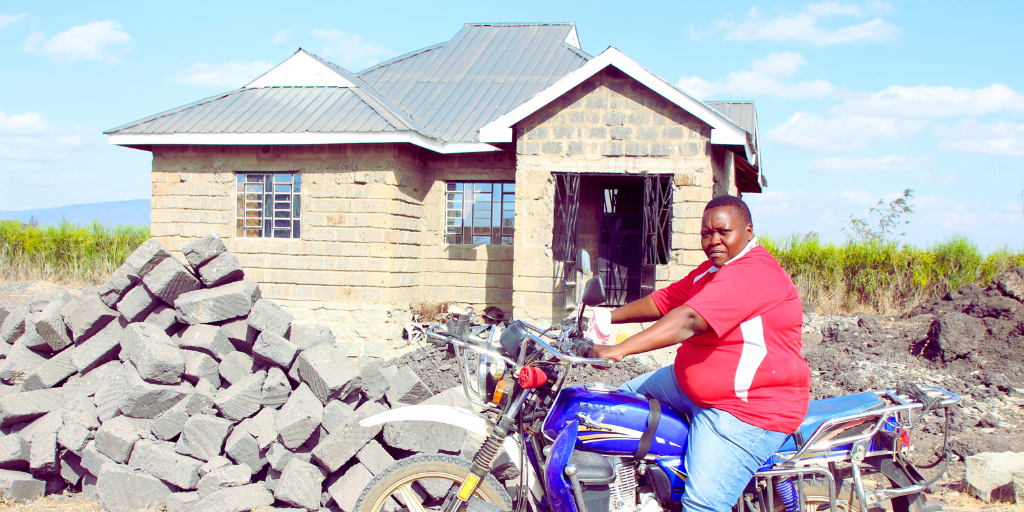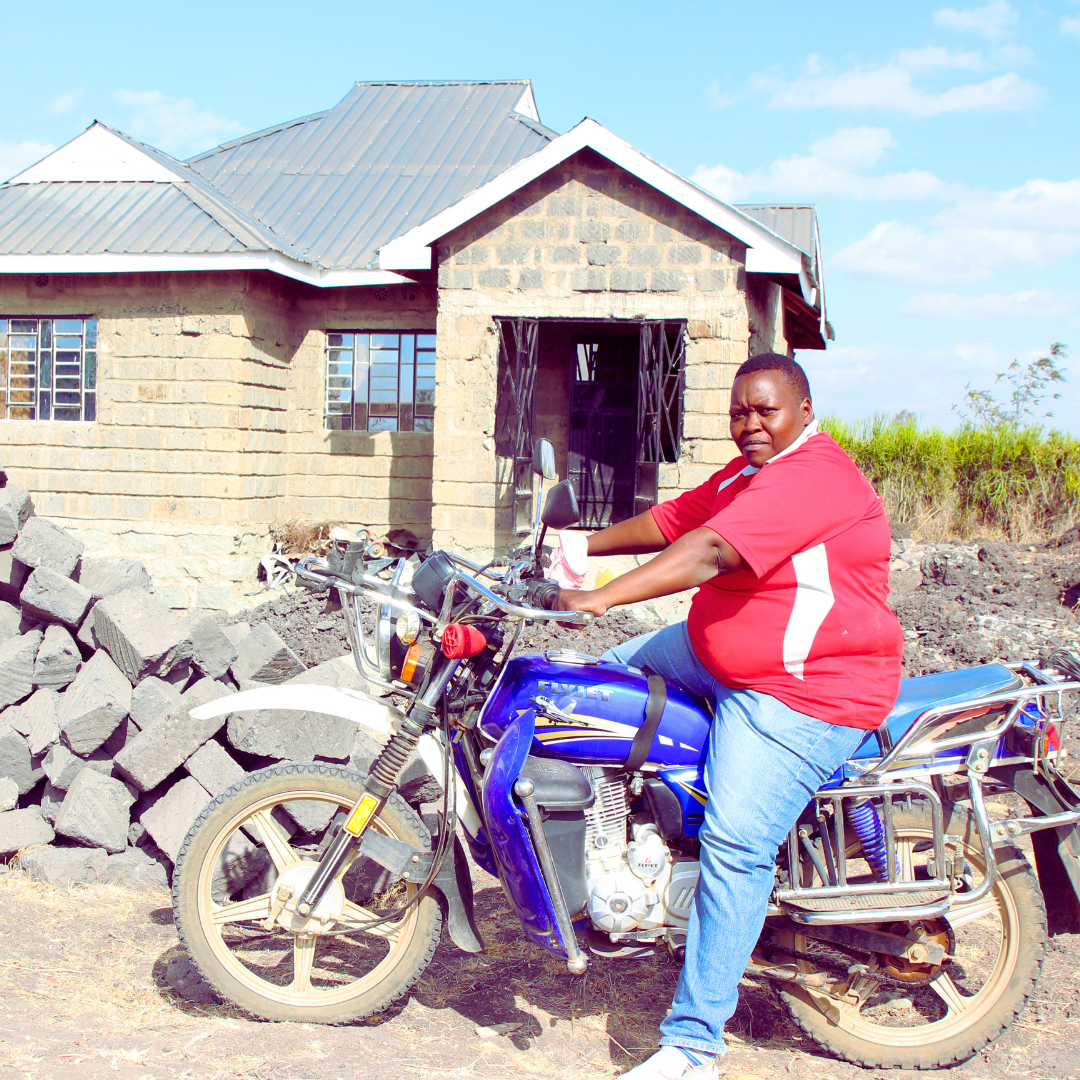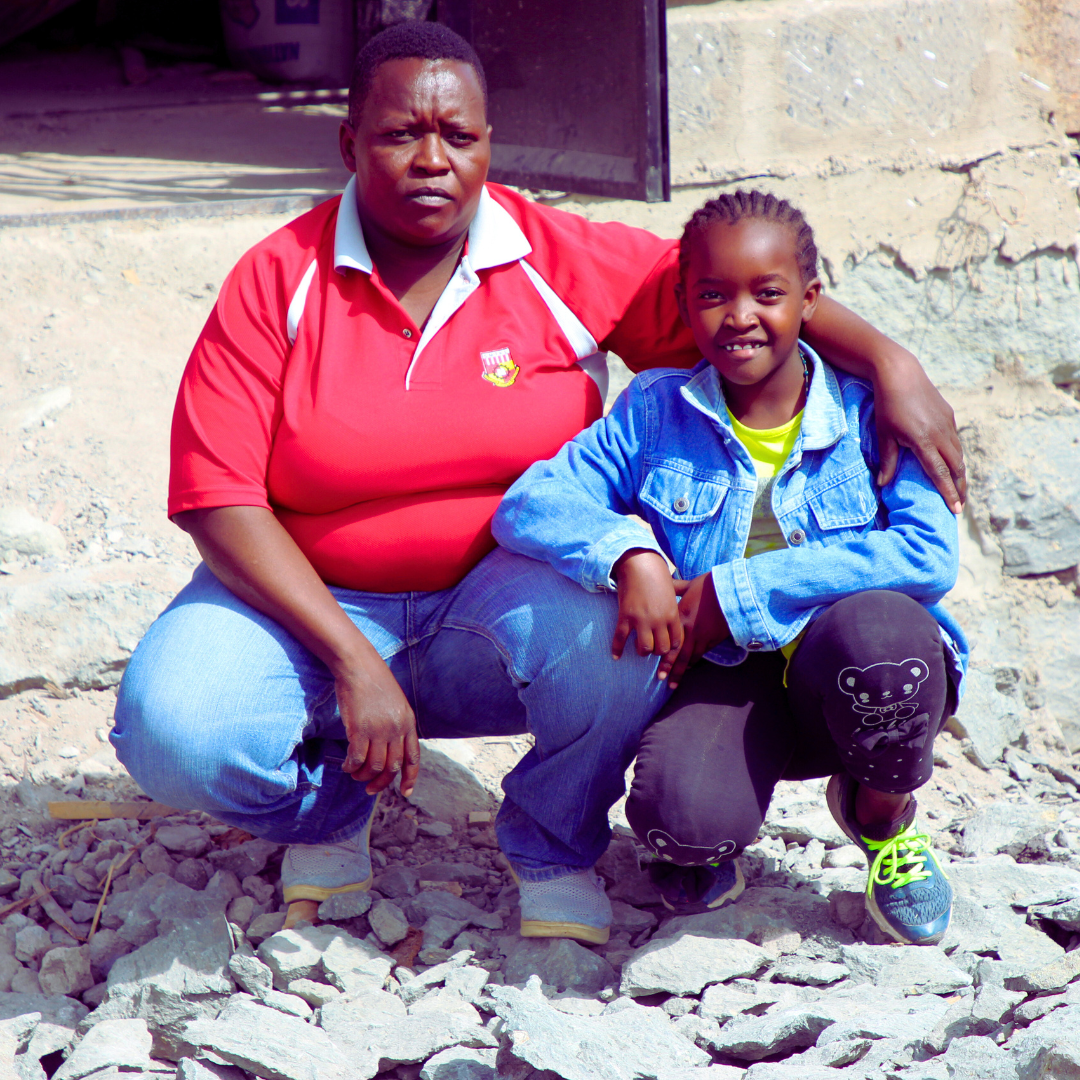
Loretta Kline, managing editor of Unbound, reflects on work as an essential aspect of human dignity.
I had the privilege recently to travel to Michigan’s western Upper Peninsula where my mother was born and grew up. The area is known as Copper Country because of mining that took place there from the 1840s to the 1970s.
My grandfather, Victor Hovinen, was a miner with the Quincy Mining Co. in Hancock from 1900 until 1931, when the company suspended operations in the Great Depression, and again for several years after the mine reopened in 1937.
Payroll documents housed in Michigan Tech’s University Archives and Historical Collections showed that 100 years ago, in 1923, my grandfather made $4.23 a day. Before the mine stopped production in 1931, he earned $5.83 a day. He worked six days a week, though in some two-week pay periods he had only one or no days off.
Incredibly, the wages my grandfather earned a century ago were in the range of what many parents of Unbound sponsored children earn today. Many of those parents also work six or seven days a week for a daily wage, sometimes with few or no benefits.
According to Catholic tradition, work is an essential aspect of human dignity. One of the seven themes of Catholic social teaching, “The Dignity of Work and the Rights of Workers,” holds that “work is more than a way to make a living; it is a form of continuing participation in God’s creation.”
Despite the harsh and dangerous conditions my grandfather endured in the mine, he, along with my grandmother Naema—who did domestic work outside the home along with caring for seven children, cooking and handling the bulk of household chores—were able to provide for their family’s basic needs. They struggled at times but lived in relatively spacious company-owned houses rented for $10 a month, received medical care from a company doctor and sent their children to good schools.
In contrast, families in communities served by Unbound often live in cramped houses with dirt floors and without ready access to clean, running water. They may not be able to afford enough food for three meals a day and pay school fees for their children.
Mary lives in the Nairobi area of Kenya and makes a living driving a boda boda, a motorcycle taxi commonly found in East Africa. Mary chose the occupation because she can make more than she could as a farmworker, which is how many in her community earn income.

“I figured if I didn’t do boda boda, then I had to go and till other people’s land and be paid 300 [Kenya shillings, equal to about $3 a day], which is not sufficient for my needs,” she said. “But with boda boda, I can earn maybe 500 or 600 [Kenya shillings, or about $5 to $6 a day], and that’s why I preferred it.”
Mary’s 9-year-old daughter Ann is sponsored through Unbound. Thanks to the support of Ann’s sponsor, Mary has been able to work toward improving the family’s housing situation, so they no longer have to contend with a congested space and leaky roof.
Unbound sponsorship gives parents like Mary support to overcome poverty and provide decent living conditions and opportunities for their children’s education—just as my grandfather and grandmother did for their family.
Please pray with Unbound:
Generous and righteous God, strengthen us to seek a just society where all workers receive a fair wage and benefits. Let us reflect on the wisdom shared in Ecclesiastes 3:12-13, which says, “I recognized that there is nothing better than to rejoice and to do well during life. Moreover, that all can eat and drink and enjoy the good of all their toil — this is a gift of God.”

Copyright 2023 Loretta Kline for Unbound
Images: copyright 2023 Unbound, all rights reserved.
About the Author

Unbound
Unbound is an international nonprofit founded by lay Catholics grounded in the Gospel call to put the needs of the marginalized and vulnerable first. We build relationships of mutual respect and support that bridge cultural, religious and economic divides. We bring people together to challenge poverty in Africa, Asia, and Latin America. We invite you to join us. Find us on Facebook, Instagram, and YouTube.


.png?width=1806&height=731&name=CatholicMom_hcfm_logo1_pos_871c_2728c%20(002).png)
Comments